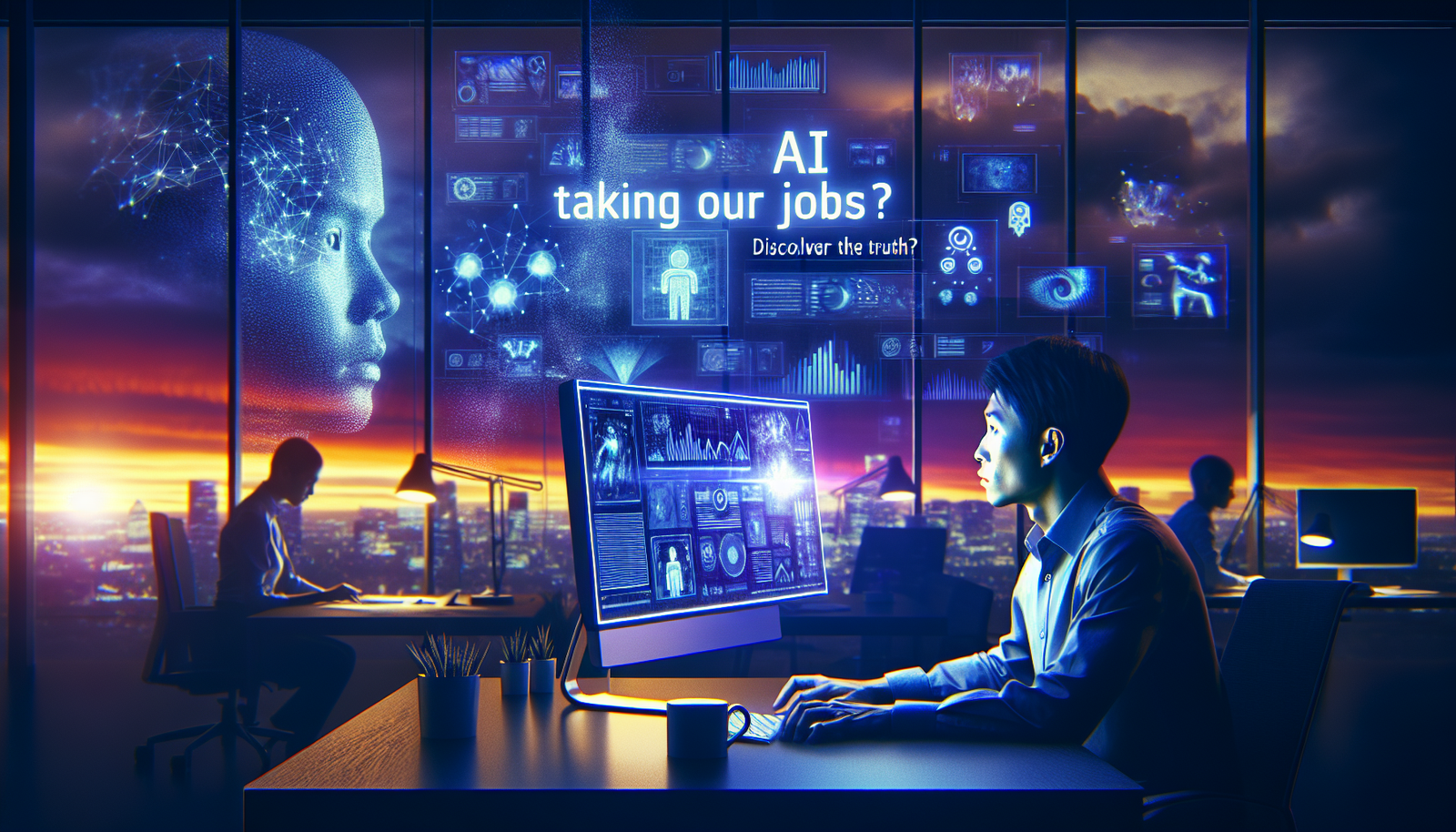The impact of artificial intelligence on employment raises increasing concerns. Three million jobs could disappear due to the widespread adoption of these technologies. Projections advanced by a think tank reveal that long-term losses remain ‘relatively modest’ compared to the scale of the disruptions. This dynamic raises questions about the very structure of the labor market and future job opportunities. Reflecting on these issues requires a thorough analysis of the transformations caused by AI. Despite the fears, new technologies also promise to create unprecedented roles that could be enriching for workers.
The impact of AI on employment in the UK
According to a report from the Tony Blair Institute, Artificial Intelligence (AI) could lead to the elimination of 1 to 3 million jobs in the British private sector. The projection mentions an increase in short-term job losses, but asserts that long-term consequences remain relatively modest.
Annual job loss forecasts
Estimates indicate that each year, between 60,000 and 275,000 positions could be affected, particularly during the most disruptive phases of AI adoption. This remains modest compared to the 450,000 annual losses observed over the last decade, while the country has more than 33 million employees.
Adaptation of the labor market
The report emphasizes that job losses should not lead to massive long-term unemployment. The dynamics of the market could even increase, as AI would encourage many workers to leave their current jobs for new opportunities created by the technology.
A transformation of the labor market infrastructure is deemed necessary. According to the report, establishing an early warning system could help anticipate the effects of AI on professions.
Economic consequences of AI
The deployment of AI could boost UK GDP by up to 1% over five years, with a perspective of reaching 6% by 2035. However, the unemployment rate could temporarily rise by 180,000 people by 2030.
Analysis of affected sectors
The report identifies several sectors as particularly vulnerable, including administrative and secretarial jobs. Jobs in sales, customer service, and those in finance are also expected to experience the highest losses due to productivity gains associated with AI.
Repercussions of productivity gains
Businesses could benefit from a significant reduction in the time spent on routine and cognitive tasks, with the report estimating that nearly 25% of employees’ time could be saved thanks to AI. This would lead to job cuts in the short term, as many organizations seek to capitalize on these time savings.
Investment and government policies
All scenarios outlined by the Tony Blair Institute depend on various factors, such as the AI tools that will emerge over the next decade, companies’ investment decisions, and public policies. The report emphasizes that AI could not only eliminate certain jobs but also create more by multiplying opportunities related to technological innovation.
A balanced approach to regulation
The debate on the impact of AI on employment is intensifying, with political figures calling for increased regulation. It becomes essential to ensure that workers are protected while promoting the benefits brought by this technology. Voices are also being raised to warn against the possible consequences of a hasty adoption of AI without adequate measures.
Frequently asked questions
What are the main reasons for job losses due to AI?
Artificial intelligence primarily replaces repetitive and routine tasks performed by workers, which can lead to job losses in sectors such as administration, customer service, and finance.
What is the estimated number of jobs that could be lost due to AI in the UK?
According to recent analyses, AI could lead to the loss of 1 to 3 million jobs in the British private sector, although ultimately, long-term losses are deemed relatively modest.
Which types of jobs are most vulnerable to automation by AI?
The jobs most exposed to automation by AI are those related to administration, sales, and customer service, as well as those in the banking and financial sectors.
Are job losses caused by AI permanent?
No, while some jobs may be eliminated, AI is also likely to create new positions and increase demand for certain occupations, thereby helping to mitigate long-term job losses.
What impact could AI have on employees’ productivity?
AI can boost employee productivity by allowing them to focus on more complex and creative tasks while taking care of repetitive and tedious duties.
What measures can be taken to mitigate the negative effects of AI on employment?
Solutions such as training and retraining workers, as well as developing appropriate social protection policies, can help mitigate the effects of job losses due to AI.
What is the overall opinion of the think tank regarding the long-term implications of AI on employment?
The think tank emphasizes that while AI might lead to job losses, the impact on the labor market in the long term will be limited, with job losses expected to remain in the lower hundreds of thousands.
How should companies prepare for the impact of AI on their workforce?
Companies should invest in continuous training for their employees, adopt workforce transition strategies, and integrate AI in an ethical and responsible manner.






